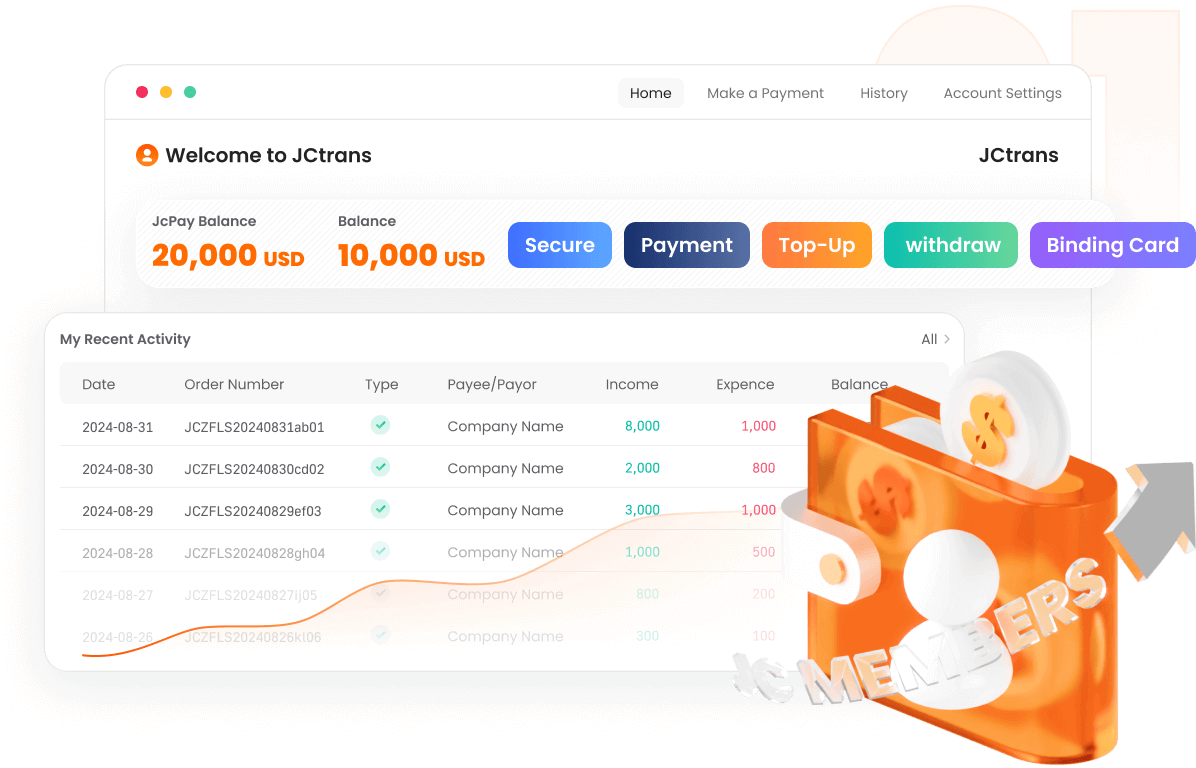商机链接
汇聚全球1.1万+付费会员,66万+注册用户,覆盖179个国家,全年220万+次商机撮合量
合作保障
严格准入门槛,建立有信誉的圈子,平台提供最高15万美元合作风险保障
营销推广
官方邮件和社媒推广,推广您的商铺和品牌,每年举办多场全球大型会议
经营提效
免手续费的支付服务,享受全球会议折扣、保险、及物流工具优惠价
搜索全球优质代理
丰富的全球会员资源覆盖179个国家1.1万+付费会员,66万+注册用户
多种业务类型会员
从危险品到大型项目,丰富的会员和精准的搜索筛选助你快速找到专业合作伙伴
保障合作无忧
严格的入会审查机制,打造诚信合作圈子,提供最高15万美金的财务保障
数字化商铺
丰富的标签、证书、视频展示业务能力,在线IM接待实时与客户沟通

会员一站式免费使用
JCtrans会员账号已免费升级权益,可直接登录进行交易
0手续费,实时到账
会员间收付款没有任何手续费且实时到账
安全可靠
稳定的银行合作关系,保证账户资金安全
















